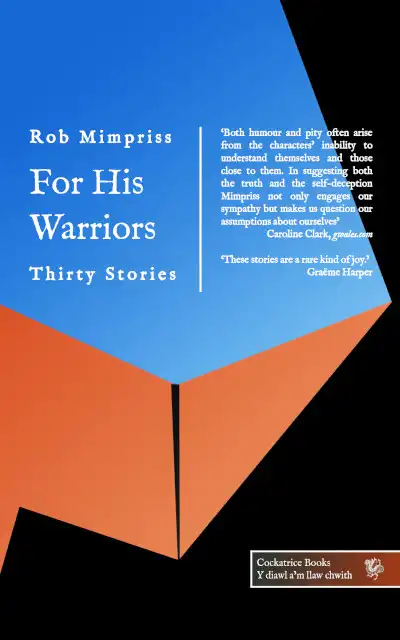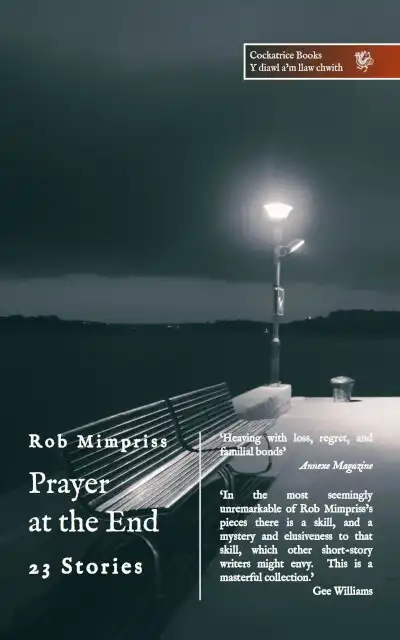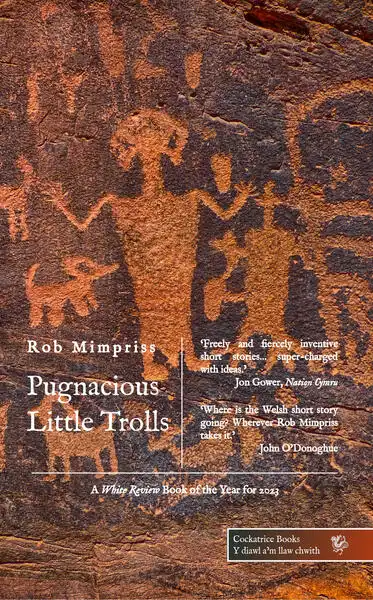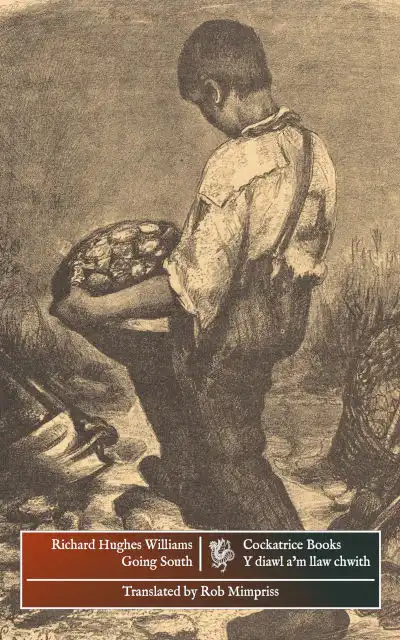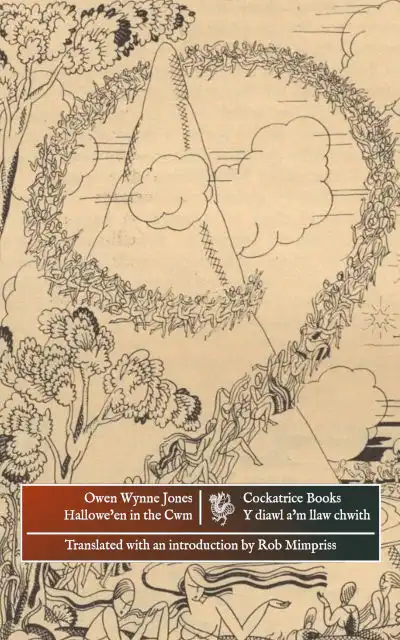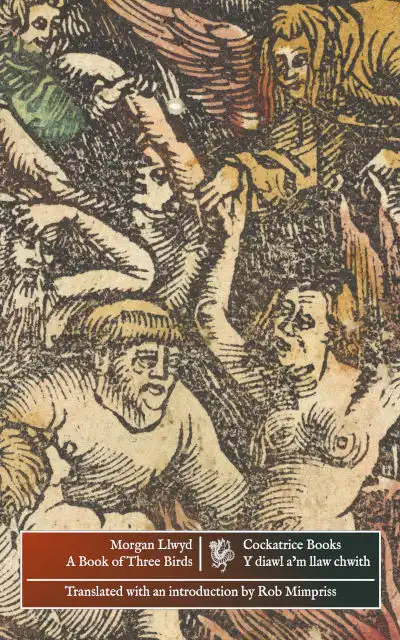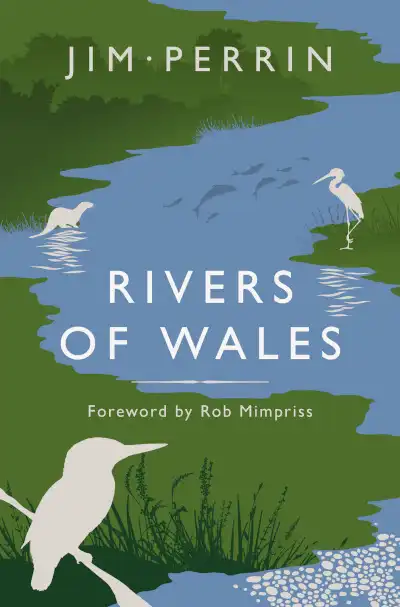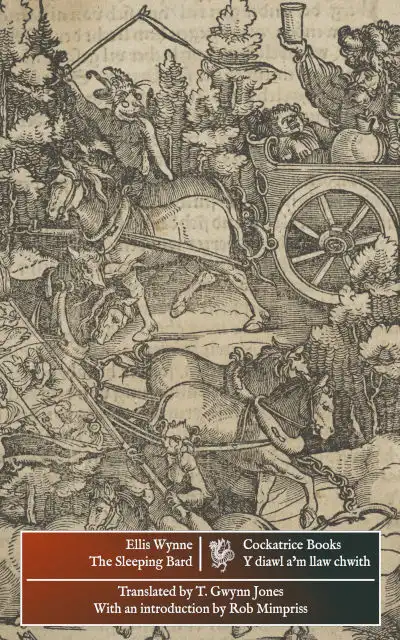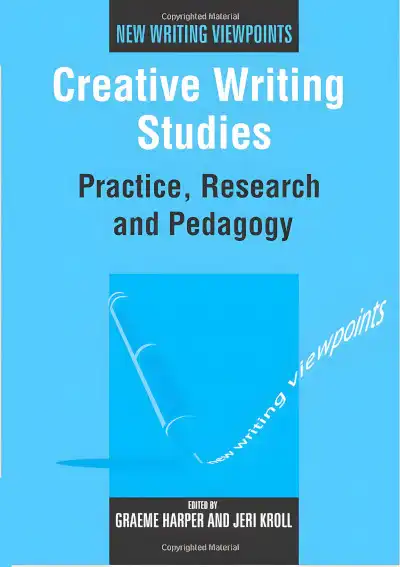The following essay is adapted from my thesis in Creative and Critical Writing, for which I was awarded a doctorate by Portsmouth University in 2005.
In my experience as a student and teacher of creative writing courses, I have become aware of a problem which I believe is specific to teachers and students of prose. Tutors and students reflect the attitudes of a culture in which literary competence is expressed through the completion of a novel, a sustained and complex literary structure reflective of a sophisticated understanding of life. But I find that commonly, the undergraduate student’s competence is measured, for practical reasons, within a short portfolio – which displays variety and determination by containing more than one complete short story.
Students are therefore initially assessed by their success in a form which they themselves may regard as inferior, and of which they may have little knowledge or understanding. It is also one which they expect to abandon, as longer courses are assessed on the basis of more substantial pieces of work, leading ultimately, they hope, to the publication of a novel. But this process does not affect the poet, whose first published poems need not differ formally from his earlier work. In dealing with student prose-writers, two alternatives exist. One is to extrapolate their likely success as novelists from within the short story form, in what is best described as a leap of the imagination, and I suspect that this task is assumed by editors and competition judges outside the university. The other is to take the form seriously in the classroom, to consider with students its nature as an artefact whose significance exceeds its apparent extent.
Ernest Hemingway’s ‘Hills Like White Elephants’ illustrates this description most effectively. Formally it contains only two characters, and reports the minor incidents of less than an hour. The opening paragraph vividly establishes its parameters, mentioning the long, white hills across the Ebro valley, and the station ‘between two lines of rails in the sun.’ An American and a girl are sitting in the shade of the station building, waiting for the train that will take them to Madrid in forty minutes.
It is a typical impersonal Hemingway setting. Neither the American nor the girl belong on this station, and any debate which takes place between them takes place on neutral ground. It is also a relatively public place, where they can be observed or overheard by an invisible narrator, and where a disinterested reader can judge between them: the casual vividness of the scene reminds us of conversations we have overhead. Because the station is between the tracks, the characters are well placed to get on the train to Madrid, but they could as easily reverse directions and go to Barcelona – though Madrid has been identified with the abortion that the American wants for the girl. But it will be noted that there is no third line, and no third destination is possible. They must go towards Barcelona or towards Madrid, just as the girl must choose whether to have her child or whether to abort it.
The landscape of the valley also emphasises this choice. The white hills are mentioned twice on the first page, and are compared by the girl to ‘white elephants.’ The sun is also mentioned twice, as well as the lack of shade, and both the narrator and the American refer to the heat. The country is also brown and dry. This is the side of the valley they can see on the platform where they are waiting for the train to Madrid, but at one point in their argument the girl crosses to the other side of the station. From there she can see grain, trees, fields and mountains, and she returns to the American to say: ‘And we could have all this… and every day we make it more impossible.’
The choice is therefore between abortion and a brown, infertile landscape on the one hand, and parenthood and a fertile, varied country on the other. The story describes an argument lasting forty minutes, a crucial moment in which the events leading the girl to her choice, and the choice she makes and its consequences, are never made explicit. The narrator is able to maintain his neutrality through his use of cinematic viewpoint and through his careful selection of a single forty minutes of time.
In Hemingway’s short stories Person A. and Person B. commonly discuss some disagreement in a location where neither person belongs: we think of the man and his lesbian girlfriend in a café in ‘The Sea Change,’ of the husband and wife in a hotel room in ‘Cat in the Rain,’ of two soldiers discussing the merits and demerits of marriage in a barracks in ‘Now I Lay Me.’ But these apparently neutral locations do commonly favour one side over another: the one who is able to reduce his commitments, to travel light, is more at ease in a public place than a homemaker. The wife in ‘Cat in the Rain’ may enjoy her cat for a while, but she must leave it behind when they move on – and in ‘Hills Like White Elephants’ it is the man who takes care of the bags, with the ‘labels on them from all the hotels where they had spent nights.’ In settings which are bare of possessions, which are bare of any objects at all, in public places which one must soon leave, the life of the footloose traveller is favoured. And as the wife and the girl both know, it is necessary to move on if they are to settle down – the fertility and security and domesticity they crave will not be found in a hotel room or in a railway station.
If the meeting of characters in a public place favours one particular set of values, the meeting of host and guest in a private place favours another. The guest finds himself in the domain of a host who can offer him shelter, comfort and protection, yet may demand some recognition of his ownership and authority in return.
For Freud, civilisation begins in the union of a man and a woman. The woman makes herself sexually available to the man, and expects protection and provision for her children. But her interests extend no further than this household, and cannot, according to Freud, bring civilisation to fruition, which otherwise will consist of ‘pairs of individuals… libidinally satisfied in each other, and linked to all the others by work and common interests.’ In hospitality, the resources of the household are diluted, and hospitality tests the householder’s willingness to contribute to the welfare of the human species as a whole. The host therefore becomes the supporter of a civilisation, the guest its beneficiary.
Ernest Hemingway’s ‘Wine of Wyoming’ and Raymond Carver’s ‘Feathers’ explore these negotiations. In ‘Wine of Wyoming’ the American narrator has returned temporarily from Europe, and has taken to visiting a rural speakeasy run by a Frenchwoman, Madame Fontan, and her husband. Over a series of visits the friendship of the three is cemented by their shared love of drinking and by their Catholicism, and the narrator and the Fontans agree on a ‘fête’ to which he must also bring his wife. But the day before the party they have a long day hunting, and since they are leaving Wyoming the next day they fail to honour the appointment. To make up for it they call on the Fontans the next day. Fontan is depressed and unwell after having drunk the three bottles of wine meant for the party, and the narrator cannot promise to visit Wyoming again. He and his wife drive away, agreeing that they should have gone to the party. No end to the American Prohibition is in sight, and the Fontans will die before long.
The bulk of the story takes place in the Fontans’ home during the three visits that the narrator makes there. Between these visits the narrative stops, and it is unclear where the narrator goes and what he does when he is not visiting the Fontans. His repeated visits make clear the ease of the Fontans’ welcome, and his acceptance of it in a relationship that is like friendship since he is never shown paying for the drinks they serve. But their welcome is also based on their assessment of his character: in the first scene a party of customers are turned away because they are already drunk, and the Fontans have had bad experiences with binge drinkers. Moderate drinking is the basis of social intercourse, in France if not in America, and to drink for the sake of being sick seems as unnatural and incomprehensible as the government’s persecution of Fontan for running a speakeasy.
But for H.R. Stoneback, their drinking is linked to their religious faith, in a church which uses wine to commemorate the sacrificial death of Christ. The Fontans themselves are a fountain of refreshment in a barbaric, unbelieving land, and the abandoned ‘fête’ to which they invite the narrator and his wife has religious undertones: at which Fontan, priest-like, must drink the consecrated wine because there is no one present to share it with him.
‘Hills Like White Elephants’ isolates its characters at a moment of decision between the fertility and acceptance of life desired by the girl, and the arid wandering the American still favours, dismissed by the girl as ‘look[ing] at things and try[ing] new drinks.’ ‘Wine of Wyoming’ isolates its characters at a moment of refreshment, as rare, and as precious, as a well or fountain in a dry land. But the narrator abuses the Fontans’ hospitality by failing to turn up for their party as expected; his spiritual refreshment turns to guilt as he and his wife depart for a destination that is never named on a journey that has not been previously mentioned.
Such a moving celebration of hospitality is unusual in Hemingway’s work, in which characters normally collide in the cafés, bars and hotels which Frank O’Connor attacked for their impersonality. Raymond Carver uses hospitality more often to set the temporal and spatial parameters of his work, though in stories such as ‘What’s In Alaska?’ and ‘What We Talk about When We Talk about Love’ it is of an informal kind. Couples of roughly equivalent circumstances visit each other to talk and drink, and the rôles of guest and host seem interchangeable.
By contrast, some inequality of status is evident in Jack and Fran’s visit to Bud and Olla in Raymond Carver’s story, ‘Feathers.’ As Freud anticipates, it is Bud who offers hospitality to the other couple through Jack, his colleague at work, and it is one of the women, Fran, who is ungenerous and suspicious of that hospitality. She is afraid of being served food she dislikes, and afraid that whatever gift they take will prove inappropriate – suggests taking a bottle of wine, but abandons the idea because she doesn’t want to ‘make a reproduction out of it,’ and decides in the end to take some home-made bread.
Bud and Olla’s hospitality, and Fran’s ungenerosity, are used to gauge the strength of these two marriages. Fran is ‘a big tall drink of water,’ nicknamed Swede by her husband, who encourages her to wear her blonde hair long and says he might stop loving her if she has it cut. They are childless by choice, but Fran works at a creamery, and while they seldom go out they spend their evenings watching television or discussing such aspirations as a new car or a holiday in Canada. Their home is not described in great detail, though an early scene in the story takes place there, when Jack and Fran discuss Bud’s invitation.
By contrast the drive to Bud and Olla’s house in the country is vividly described, and the house itself is one of Carver’s richest interiors. Immediately struck by the peacock who greets them from the front drive they are shown into the house itself by Bud and introduced to Olla, whose physical appearance dramatically contrasts with Fran’s: ‘This plump little woman with her hair done up in a bun was waiting for us in the living room. She had her hands rolled up in her apron. The cheeks of her face were bright red. I thought at first she might be out of breath, or else mad at something. She gave me the once-over, and then her eyes went to Fran. Not unfriendly, just looking. She stared at Fran and continued to blush.’
They are clearly very different types of people: the mother, and the woman who does not want children, the woman who has been so reluctant to come, and the wife who encouraged her husband to hand out cigars at work to celebrate the birth of their son. And in particular their attitudes to hospitality are crucial, for Bud and Olla’s marriage is itself an act of hospitality, in which Bud is seen by both of them as Olla’s provider and protector, and Olla is seen as his beneficiary and guest.
This difference is made clear before the meal, when Fran notices a plaster-cast set of crooked teeth on top of the television. Bud is self-deprecating, explaining: ‘Them’s what Olla’s teeth looked like before she had her braces put on… For the life of me, I don’t know why she keeps them around.’ But Olla uses them ‘to remind me how much I owe Bud,’ since it was Bud who paid for her orthodontic treatment, after rescuing her from her first husband and marrying her himself. The peacock or ‘bird of paradise’ which guards the entrance to Olla’s home is also a gift from Bud, and the fulfilment of one of her childhood dreams. Olla’s open statement of gratitude to and reliance on her husband is incomprehensible to Fran, who thinks she must have misheard, just as Bud’s custom of saying grace before a meal seems odd to Jack.
But the two women do have an interest in common, in the baby which Olla brings downstairs during their meal, though initially what strikes Jack and Fran is its ugliness. First offended that Olla won’t allow her to disturb its sleep, Fran asks to hold the baby ‘like it would be a favor if Olla would let her.’ This image of Fran holding the baby, playing to it and talking to it as Bud lets the peacock into the house is also the last image we have of Bud and Olla’s hospitality. For as Jack comments: ‘That evening at Bud and Olla’s was special. I knew it was special. That evening I felt good about almost everything in my life. I couldn’t wait to be alone with Fran to talk to her about what I was feeling. I made a wish that evening. Sitting there at the table, I closed my eyes for a minute and thought hard. What I wished for was that I’d never forget or otherwise let go of that evening. That’s one wish of mine that came true.’
An area has been isolated from its location in space and time, and while Jack accepts its temporary nature, he wants to make it eternal through memory. Like the narrator of ‘Wine of Wyoming’ he has gained some spiritual refreshment from his friends’ hospitality, and perhaps also from the humanity and warmth he sees in their home. But if he feels content with every aspect of his life he presumably sees little need to change it, and one can assume that it is Fran’s decision, not his, to have a baby. For Jack, the changes that do take place are purely negative, as Fran cuts her hair and puts on weight and as his son grows up, like the Fontans’ boy in ‘Wine of Wyoming,’ with ‘a conniving streak.’
Fran gives up her job and financial independence to choose a new rôle as a housewife and mother, but she is unable to embrace it fully. Perhaps it is as the pressures of her motherhood set in that she begins to regret her decision, and to blame the incident which led her to it, cursing ‘those people and their ugly baby… And that smelly bird’ as once again she and Jack spend their evenings alone together in front of the television.
Fran sees their evening with Bud and Olla in realistic terms. She is aware of the gift that must be chosen and made, of the meal that must be cooked by another woman whose tastes may not be like theirs. She perceives the possibility of traffic between the two couples, and that is why she is able to feel envious of Olla’s maternal happiness, and threatened by her old-fashioned dependence on Bud. But it seems that Jack wishes to think of Bud and Olla’s life as unrelated to his own, as something he can admire without seeking to duplicate, and as immune to time and negative change. The long drive through idyllic countryside, the strange, unfamiliar bird, even the commonplace hospitality of a work colleague and his wife, place the evening outside the sphere of normal experience, and that is why he must mark the event by bringing a gift and dressing up, and perhaps also why there can be only one visit and he cannot invite them in return.
What the Fontans offer their guest is Catholic fellowship and European culture, which his wife is also welcome to enjoy if he will bring her and if she will come. They also offer him friendship which ultimately he rejects, content to sacrifice his relationship with them to his other interests, travel and sport. Their name encourages us to see their hospitality in sacramental terms; in contrast, Bud and Olla offer simple, ordinary friendship which they hope will be reciprocated. The wording of Bud’s invitation stresses the informality of the event, and makes Jack seem more misguided in idealising their hospitality, Fran seem more ungenerous in failing to return it. Bud and Olla are happier than Jack and Fran, and have more to give to others, but their happiness rests in their good-natured acceptance of commonplace things: the ageing of their bodies, the ugliness of their child. Their contentment with traditional gender rôles and received religious beliefs also helps them live their lives with dignity and good grace, but except, perhaps, in Jack’s imagination, there is nothing transcendent in what they have to give.
William Maxwell uses the event of hospitality to give unity to stories which excel more in the exactitude of their dialogue and description, and the quiet elegance of their prose, than in their structure. They also present a deeply conservative view of life, in which hospitality creates obligations which, inherited and bequeathed, unite the older and more established with the younger and less prosperous.
In ‘Haller’s Second Home’ it is through his friendship with their nephew, and with the girl their nephew is marrying, that Haller, a postgraduate student at Harvard who wants only to be loved, is introduced to the Mendelsohn household. In ‘The Patterns of Love’ hospitality is extended by the Talbots and their three children to ‘a young man by the name of Arnold’ who visits their house in the country regularly in the spring or early summer. Both households also offer friendship to animals, the Mendelsohns ‘officially’ having two cats while their daughter raises a litter of kittens in secret in her room, and the Talbots keeping ‘a dog and a cat, kittens, rabbits and chickens, all actively involved in the family life.’ They also keep Bantam cocks of particular concern to their daughter, Kate, and it is their disappearance, distressing to her and therefore to the rest of the family, that gives Arnold an insight into family life: ‘He began to compare the life of the Talbots with his own well-ordered but childless and animalless life in town. Everywhere they go, he thought, they leave tracks behind them, like people walking in the snow. Paths crisscrossing, lines that are perpetually meeting: the mother’s loving pursuit of her youngest, the man’s love for his daughter, the dog’s love for the man, and two boys’ preoccupation with each other. Wheels and diagrams, Arnold said to himself. The patterns of love.’
These patterns of love also dictate the relationship between host and guest: Haller is sufficiently intimate with the household to visit Abbie, the daughter, in her room, but sufficiently respectful to put his knife and fork down when Dr Mendelsohn is addressing him; Arnold gets on well with George, the son, who is yet forbidden to disturb him when he is reading in the summerhouse. These lonely heroes do not forsake the hospitality offered them, and one supposes that they will be back: Arnold as naturally and inevitably as ‘the appearance of the first robin or the arrival of violets in the marsh,’ Haller because he is in love with Abbie: ‘Then she thought about Haller – about her grievance against him, which was that he went on courting her year after year, as if faithfulness, the idea of love, was the answer to everything, and had no instinct that told him when she was willing and when she couldn’t bear to have him touch her. Why, when he was so intelligent, was he also so stupid – for she did like him, and sometimes even felt that she could love him.’
Hospitality is freely offered and gratefully received, but cannot remove the loneliness of a single life – of which Mrs Talbot has a glimpse on Arnold’s departure. It makes this loneliness more tolerable, and offers a pattern of hospitality which neither the guests nor the hosts’ children are likely to forget – just as another of Maxwell’s characters, Austin King, remembers lessons in hospitality taught him as a child. In William Maxwell’s world hospitality is the mark of a civilised society, nurturing and protective. To have guests in the home, like animals or children, is proof of a desire and an ability to improve one’s environment – like Milton’s Adam entertaining the angel Raphael, one shows a procreative mastery of the world of which one is made a part.
There is a short story by Leslie Norris, ‘Away, Away in China,’ which recalls these authors’ use of the hospitality trope. A wealthy industrialist, Alan Gwyther, returns to Wales to stay with his sister and her family to enjoy the welcome he expects her and his whole village to give him, and to ‘nourish’ himself and ‘renew contact with [his roots].’ Complacent and condescending, he finds his niece ‘drab and ordinary’ and his sister ‘frail’; the country lanes are as beautiful as he remembers them, though some of the people he once admired are dead. It is only when he tries to remember the Welsh missionary hymn he used to sing as a child that he realises he has ‘forgotten a lot.’ He tries to lead the family into the parlour for a singing session, but fails, since only Mary, his niece, comes with him while the others stay behind in the other room to talk. His foolishness and humiliation come home to him while rain falls against the window, ‘irregular, hard, stinging like tears.’
The theme of the story is familiar to Welsh literature – a Diaspora piece, it explores the relationship between those Welsh who have left and those Welsh who remain in Wales. The difference is presented in fairly stark terms, since on the one hand we have Gwyther’s fondness for chauffeured Daimlers, Bentleys and Rolls Royces, his rudeness and condescension, and his loss of Welsh language and culture; on the other we have the poverty and quiet dignity of Margaret and her family, and their loyalty to Wales. The detailed animation of character is not where Norris normally excels, but one senses a determination to bring certain issues to the forefront, and they are discussed by the characters themselves in rather stilted dialogue:
‘Not everyone can stand leaving home,’ Mansel said, not taking his eyes off the road. ‘Not everyone can take it, living far away.’
His voice was so slow and thoughtful and the old man [Gwyther] searched for some deeper meaning.
‘You have to go,’ he said, ‘where your gifts and your energies take you. One place is much like another. You make the place in which you live, it becomes your creation.’
‘Not so.’ Mansel shook his head in gentle dissent. ‘Some people live more easily with their failure than others.’
Welsh relatives living beyond the border commonly return home to visit family and friends, and the contradiction between exile and belonging may well be felt, but one feels that human beings are normally more pragmatic than Alan Gwyther and his family. The death of the elderly, the impact of immigration, the beauty of the countryside and the importance of song are the familiar concerns of this type of fiction, and to use them so heavy-handedly reduces the dignity of the characters and the impact of the themes.
Hospitality is a central concern of Welsh literature, stretching back to the Middle Ages when high-born patrons opened their houses to poets and were rewarded with commemoration and praise. One sees the continuation of this custom in the short stories of Owen Wynne Jones (also known as Glasynys, 1828-1870), who praises the warm hearts of those traditional Welsh families who open their homes to his characters, where courtships are begun and marriages forged. Yet hospitality is also a theme of contemporary Welsh politics, in which English-speaking immigrants to Welsh-speaking areas incur the duties as well as the privileges of guests. Ernest Hemingway, Raymond Carver and William Maxwell have shown how hospitality can give strength and complexity to a short story, uniting it in space and time, and exploring personal values and relationships through the rôles of host and guest.

